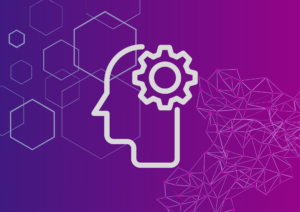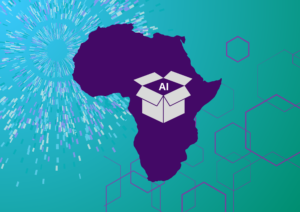Para leer la versión en español, siga desplazándose hacia abajo.
On Tuesday, May 9, 2023, Datasphere Initiative, D4D Network, and The Global Index on Responsible AI, organized a webinar on “Data for Artificial Intelligence in Latin America and the Caribbean – Trends and Challenges”. This regional event gathered experts, researchers, and leaders in the field of Artificial Intelligence (AI) and data governance to discuss the challenges and opportunities of data governance and AI in the region.
The discussion highlighted how Latin American and Caribbean (LAC) countries are in the process of finding what a LAC regulation and approach to both data governance and regulation of technologies such as AI looks like, and showcased examples of work across the region to explore innovation policy and technological approaches to responsibly unlocking the value of data for all.
AI has become one of the most promising technologies in a wide range of sectors, including healthcare, agriculture, mobility, and education. However, to maximize the benefits and minimize the potential risks associated with the growing amount of data, it is crucial for various stakeholders, such as governments, the private sector, and civil society, to have an understanding of both the benefits and the challenges involved. It is equally important to ensure that these actors are equipped with the skills and tools to govern it responsibly.
Based on discussions at the event, this blog highlights the main trends and challenges for the use of data and AI in the region.
Specific challenges in Latin America and the Caribbean
AI technologies are currently booming and globally there is a “collective excitement” to extract its benefits across different sectors. At the same time, recent calls and fears to address AI threats have been widely reported. To ensure that AI is used responsibly in LAC, it is essential to recognize the challenges that its use and governance represent for the region and the impact data governance has on addressing challenges.
Challenges range from the lack of quality data, or its availability in digital format, to its inaccessibility, insufficient interoperability, or the lack of a culture of transparency that allows data to be shared between organizations and regions.
To address these challenges, it is necessary not only to develop greater technical skills, especially in the public sector, but also to foster governance frameworks that promote the digitization of data and increase its quality, protection, and access, ensuring that its value is unlocked for all.
“As a society, we have a responsibility to participate in these discussions, as data is a fundamental asset for the implementation and responsible use of technology”, said Armando Guio Español, Affiliate at the Berkman Klein Center for Internet and Society at Harvard University.
The fundamental role of communities for data governance in the region
One of the peculiarities of Latin America and the Caribbean is the diversity of communities that exist around data. With the increase of data and wider recognition of its potential benefits, new communities have emerged, promoting its use and governance at the local level. Encouraging the participation and agency of different communities is fundamental for data governance in the region to be inclusive, responsive to local needs, and beneficial to all.
Some of the communities highlighted by the panelists were:
- Alianza A+, Feminist Artificial Intelligence Research Network – Latin America and Caribbean Hub: this community promotes a feminist and gender perspective to foster more inclusive technologies in Latin America and the Caribbean.
- Señoritas Courier: is a collective that offers bicycle delivery services in São Paulo, focusing on empowering women and LGBTQIA+ individuals. Through their work, they seek to redefine the concepts of mobility, and sustainability.
“When we talk about the global north we also have to think that there is a great exclusion of rights, for example, of migrants and immigrants, or members of the LGBT community. When we talk about the guarantees of the global north, I think it is important to highlight that they are not for everyone, but are aimed at very specific parts of the population”, mentioned Marina Garrote, Researcher at the Data Privacy Brazil Research Association.
The way forward
Many Latin American countries have adopted data governance frameworks inspired by those from other regions of the world. For example, Brazil used the European Union’s General Data Protection Regulation (GDPR) as inspiration for its General Data Protection Law. However, panelists of the event reflected on how this trend can often fail to respond to local needs and be counterproductive in addressing these challenges.
“It is important that we join efforts in the region for data governance”, highlighted Laura Ación, Researcher at CONICET-University of Buenos Aires, during the webinar.
Latin American and Caribbean countries are in the process of finding what a Latin American regulation and approach to both data governance and regulation of technologies such as AI looks like.
With specific regional needs, the challenge facing the region is to find its “regulatory identity”. In doing so, the region would not only adopt foreign governance models but could propose innovative approaches that respond to its local needs and serve as an example for other regions.
“We must make progress towards the inclusion of marginalized groups in our region such as women, LGBT, Afro-descendants, and indigenous people”, said Jamila Venturini, Executive Director, Derechos Digitales. “It is key to have conversations like this, in a coordinated manner and taking advantage of the different capacities we have in the region, to create the conditions in which the use of these technologies favor justice”.
Latin America and the Caribbean are regions with profound disparities and contrasts, which at the regulatory level present additional challenges when it comes to governing data and regulating technological advances such as AI. The region faces the challenge of building its own vision to address the aforementioned challenges, as well as fostering dialogue and innovation through the use of tools such as sandboxes for data. The webinar highlighted the depth and breadth of organizations and initiatives seeking to address these challenges and responsibly unlock the value of data for all through new approaches to policy and technological innovations.
- Watch the recording of the event.
- More information about the Datasphere Initiative and D4D Network AI and data governance webinars.
Versión en Español
Tendencias y Desafíos del Uso de Datos e Inteligencia Artificial en América Latina y el Caribe
El pasado martes 9 de mayo se llevó a cabo el webinar “Datos para la Inteligencia Artificial en América Latina y el Caribe – Tendencias y Desafíos”, organizado por Datasphere Initiative, D4D Network y The Global Index on Responsible AI. En este evento regional se reunieron personas expertas, que investigan y lideran en el campo de la inteligencia artificial (IA) y la gobernanza de datos con el objetivo de explorar y debatir sobre los desafíos y oportunidades que existen en la región para utilizar los datos y cómo su gobernanza puede impulsar la IA.
La discusión resaltó cómo los países de América Latina y el Caribe están trabajando para encontrar una regulación y enfoque latinoamericanos tanto en la gobernanza de datos, como la regulación de tecnologías como la IA. La sesión presentó ejemplos regionales de políticas de innovación y enfoques tecnológicos para desbloquear de manera responsable el valor de los datos para todos.
La IA se ha convertido en una de las tecnologías más prometedoras en una amplia gama de sectores, desde la salud hasta la agricultura, pasando por la movilidad y la educación. Sin embargo, para maximizar sus beneficios y minimizar sus riesgos potenciales, es fundamental que distintos actores, como gobiernos, el sector privado, y la sociedad civil, comprendan tanto los beneficios, como los desafíos que la creciente y casi infinita cantidad de datos presenta en la actualidad. Resulta imprescindible que cuenten con las habilidades y herramientas para gobernarlos adecuadamente.
Este blog, basado en las discusiones del evento, destaca las principales tendencias y desafíos para el uso de datos y la IA en la región.
Desafíos específicos en Latinoamérica y el Caribe
Las tecnologías de IA están actualmente en auge y globalmente existe una “emoción colectiva” por extraer sus beneficios en distintos sectores. Al mismo tiempo, recientemente se han producido numerosos llamamientos y temores para hacer frente a las amenazas de la IA. Sin embargo, para que la IA se utilice de forma responsable en América Latina y el Caribe (LAC), es fundamental que se reconozcan los desafíos que su uso y gobernanza representan para la región.
Estos desafíos abarcan desde la carencia de datos de calidad, o su disponibilidad en formato digital, hasta su inaccesibilidad, insuficiente interoperabilidad entre bases de datos o la falta de una cultura de transparencia que permita compartir datos entre organizaciones.
Para hacer frente a dichos desafíos, es necesario que no solo se desarrollen mayores habilidades técnicas, especialmente entre el funcionariado, sino que los marcos de gobernanza promuevan la digitalización de datos, e incrementen su calidad, protección y acceso, de manera que sus beneficios sean aprovechados por todas las personas.
“Como sociedad, tenemos la responsabilidad de participar en estas discusiones, ya que los datos son un activo fundamental para la implementación y uso responsable de la tecnología”, aludió Armando Guio Español, Affiliate en Berkman Klein Center for Internet and Society en la Universidad de Harvard.
El rol fundamental de las comunidades para la gobernanza de datos en la región
Una de las peculiaridades de América Latina y el Caribe, es la diversidad de comunidades que existen en torno a los datos. Con el aumento de los datos y sus potenciales beneficios, nuevas comunidades han emergido, promoviendo su uso y gobernanza a nivel local. Fomentar la participación y agencia de distintas comunidades es fundamental para que la gobernanza de datos en la región sea inclusiva, responda a las necesidades locales, y beneficie a todos.
Algunas de las comunidades destacadas por los panelistas fueron:
- Alianza A+, Red de Investigación en Inteligencia Artificial Feminista – Nodo América Latina y el Caribe: Esta comunidad promueve una perspectiva feminista y de género para fomentar tecnologías más inclusivas en América Latin a y el Caribe.
- Señoritas Courier: Colectivo de mujeres y personas LGBTQIA+ que ofrecen servicios de reparto en bicicleta en São Paulo. “Señoritas” busca nuevos significados para la movilidad, la sostenibilidad y el trabajo de reparto en bicicleta.
“Cuando se habla del norte global tenemos que pensar también que hay una gran exclusión de derechos, por ejemplo, de migrantes e inmigrantes, o miembros de la comunidad LGBT. Cuando hablamos de las garantías del norte global, creo que es importante resaltar que no son para todos, sino que están dirigidas a partes muy específica de la población”, comentó Marina Garrote, Investigadora en la Asociación Data Privacy Brasil de Investigación.
El camino hacia el futuro
Muchos países latinoamericanos han adaptado marcos de gobernanza de datos de otras regiones del mundo. Por ejemplo, Brasil utilizó el Reglamento General de Protección de Datos (GDPR por sus siglas en inglés) de la Unión Europea como inspiración para su Ley General de Protección de Datos. Los panelistas reflexionaron sobre cómo esta tendencia puede en muchas ocasiones no responder a las necesidades locales y ser contraproducente para afrontar los retos.
“Es importante que unamos los esfuerzos en la región para la gobernanza de datos” resaltó Laura Ación, Investigadora de CONICET-Universidad de Buenos Aires, durante el webinar.
Así pues, los países de América Latina y el Caribe están en proceso de encontrar cómo se ve una regulación y aproximación latinoamericana tanto a la gobernanza de los datos como a la regulación de tecnologías como la IA. Con necesidades regionales específicas, el reto al que se enfrenta la región es el de encontrar su “identidad regulatoria”. Con esto, la región no solo adoptaría modelos foráneos de gobernanza, sino que podría proponer aproximaciones innovadoras que respondan a sus necesidades locales y sirvan de ejemplo para otras regiones.
“Hay que progresar hacia la inclusión de colectivos marginalizados en nuestra región como mujeres, LGBT, afrodescendientes e indígenas” dijo Jamila Venturini, Directora Ejecutiva, Derechos Digitales. “Es clave mantener conversaciones como esta, de manera coordinada y aprovechando las distintas capacidades que tenemos en la región, para crear unas condiciones en las que el uso de estas tecnologías sea en pro de la justicia”.
América Latina y el Caribe es una región con unas profundas disparidades y contrastes, lo que a nivel regulatorio presenta desafíos adicionales cuando se trata de gobernar los datos y regular los avances tecnológicos como la IA. La región tiene el reto de construir una visión propia que le permita hacer frente a los retos mencionados, así como fomentar el diálogo y la innovación a través del uso de herramientas como los sandboxes para datos. El webinar destacó la profundidad y amplitud de las organizaciones e iniciativas que tratan de hacer frente a estos retos, así como de desbloquear de forma responsable el valor de los datos para todos a través de nuevos enfoques políticos e innovaciones tecnológicas.





